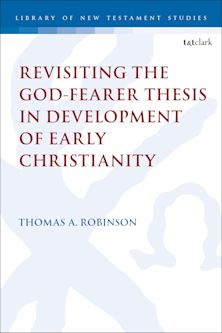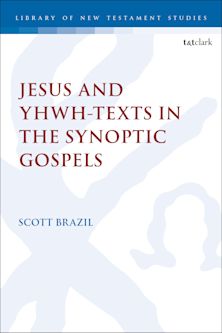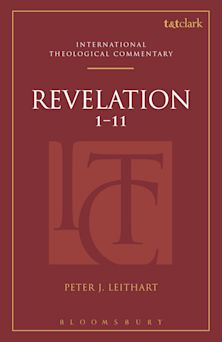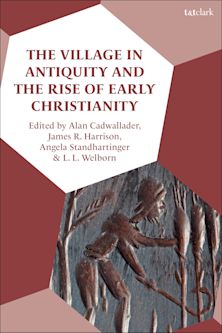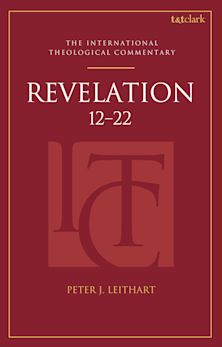- Home
- ACADEMIC
- Biblical Studies
- New Testament
- To Live in the Spirit
To Live in the Spirit
Paul and the Spirit of God
To Live in the Spirit
Paul and the Spirit of God
You must sign in to add this item to your wishlist. Please sign in or create an account
Description
To Live in the Spirit: Paul and the Spirit of God brings to light a fresh understanding of the Greek concept πνε?μα (spirit) in Paul’s ethical teaching. Placing Paul and his mixed audience within the Hellenistic Jewish and Greek (philosophical) traditions of the ancient world, this book examines his new message concerning πνε?μα’s primary function in the acquisition of virtues and avoidance of vices. Looking in detail at the various ways in which Paul views πνε?μα in his seven undisputed letters, Naveros Córdova explores πνε?μα’s development from Paul’s initial ethical reflections in his early letters to a more mature view in his later letters. Naveros Córdova argues that it is within these traditions, represented by major Hellenistic Jewish and Greco-Roman writers, that Paul construes the framework of his ethical teaching. Paul finds in the power of God’s πνε?μα a new ethical alternative for his mixed audience to living lives pleasing to God outside the observance of the Mosaic Law. Naveros Córdova demonstrates how Paul draws upon Platonic (immaterial πνε?μα) and Stoic (material πνε?μα) language that would have been familiar to his hearers in the early Christian communities to create a persuasive understanding of ethical performance and to show that the moral life of the believers springs from that πνε?μα received from God. In his efforts to highlight πνε?μα’s central role in his ethics, Paul moves beyond both traditions by describing the “Christification” of πνε?μα not only in Stoic terms, but also in Middle Platonic categories of the first century CE.
Table of Contents
Chapter 1 Understanding the Spirit: The Place of ??e?µa in a Greco-Roman World of Jews and Gentiles
Chapter 2 The New Age Concerning ??e?µa's Preeminence in Paul's Early Letters
Chapter 3 The Development of ??e?µa as Font of All Christian Virtues in the Practical Life of Believers in the Later Letters
Chapter 4 ??e?µa and the New Conception of Liberation Pervading Paul's Ethical Teaching
Chapter 5 Conclusion: Final Remarks
Product details
| Published | Nov 29 2018 |
|---|---|
| Format | Ebook (PDF) |
| Edition | 1st |
| Extent | 234 |
| ISBN | 9798765187463 |
| Imprint | Fortress Academic |
| Illustrations | 10 tables; |
| Publisher | Bloomsbury Publishing |
About the contributors
Reviews
-
N.C.’s work is informed, balanced, and stimulating. Her use of ancient sources is precise, and her readings of Paul’s letters are compelling.
Catholic Biblical Quarterly
-
Nélida Naveros Córdova offers an important and far-reaching contribution to Paul’s pneumatology, who above all develops perspectives on the Spirit’s relationship to ethics. For the author, the distinction between earlier and later Pauline letters is fundamental. As a Hellenistic Jew who participates in philosophical discourse and describes ethical objectives in platonic terms, but is also significantly influenced by the Septuagint, Paul develops in his letters a pneumatology that aims at liberation and life in terms of virtues. This ethical connotation and the linking of the Spirit’s efficacy to Christ represent the particularities of Paul‘s conceptualization. While current research often completely ignores a connection between ethics and pneumatology in Paul’s thought, Naveros Córdova demonstrates convincingly the increasingly fundamental importance that pneumatology gains for ethics in the Pauline letters.
Prof. Dr. Friedrich W. Horn, Johannes Gutenberg-Universität Mainz

ONLINE RESOURCES
Bloomsbury Collections
This book is available on Bloomsbury Collections where your library has access.
















